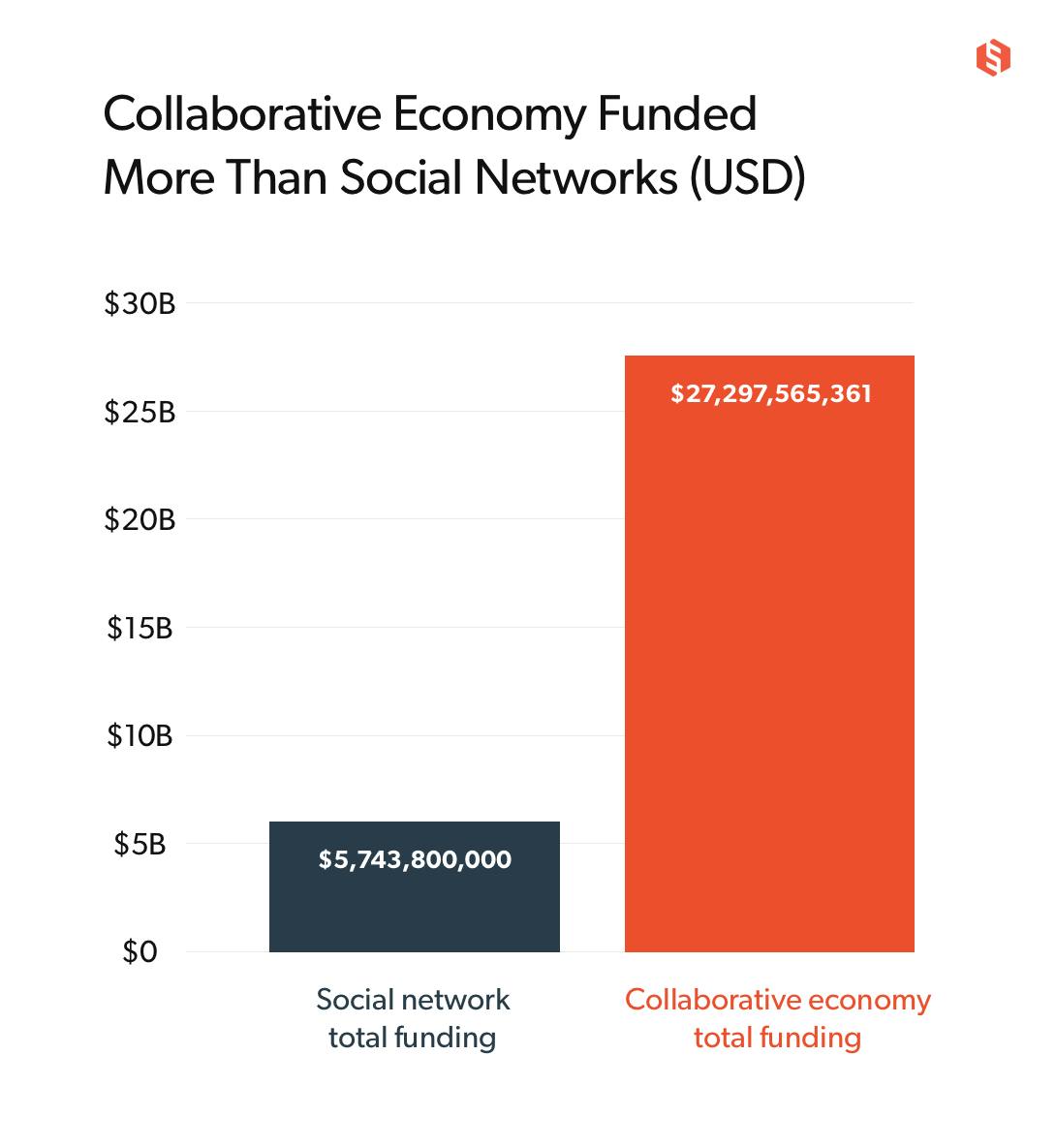What you need to know to plan your marketplace business
An introduction to online marketplaces. What they are, why they are booming, and why you should build one.
Published on
Last updated on

This article is also the first chapter of the Practical guide to building an online marketplace business. Also available in audio!
Online marketplaces are hot. The success of platforms like Airbnb, Etsy, and Fiverr has proven that the marketplace model is very scalable and can be applied to pretty much any area of business. As one of the top VC firms, Andreessen Horowitz, put it: "This is just the beginning".
In the coming years, we're going to see tremendous innovation in the field of building and running marketplaces. There's no better time to become a marketplace entrepreneur.
Even though the time is right—and the technology is finally mature enough—building a successful marketplace is far from a trivial task. In this series of articles, we share what we've learned about how to build a successful marketplace.
Before we start, a word of warning: there are no shortcuts for launching a marketplace and making it successful. Having a sound strategy and knowing best practices are important, but you still need to be prepared to put in lots of hard work to grow your community and make it flourish.
This first article will act as a high-level overview of many of the things that are required to build a successful marketplace. These include:
- Why marketplaces are booming
- What the challenges are to building a marketplace business
- Why it's important to understand your personal motivations
- Why the best way to learn is by launching as soon as possible
- Why engaging your users should be a priority
In the following chapters of this guide, we are going to take a deeper dive into these subjects.
The first time I came across Airbnb, I was amazed. The design and usability were excellent. Whenever I showed the service to someone, they fell in love with it. Many of them started instantly searching for a host for their next trip. Once they returned from their trip, they recommended Airbnb to friends and colleagues.
Many entrepreneurs who approach me through Consumo Colaborativo are eager to share their idea of creating an "Airbnb for X". That's normal: the success of Airbnb and the Collaborative Economy, in general, is something that cannot go unnoticed. This chart shows it quite well:

As of December 2015, funding for projects that are part of the Collaborative Economy industry is already almost five times what the most successful social networks (including Facebook, Twitter, LinkedIn, and YouTube) have raised. Since then, the gap has grown even further. If the influence of social media on our society has been unprecedented, we can imagine what kind of effect these collaborative platforms are capable of.
We are talking about a young industry with great potential for growth. PwC did a study on the global market size of the collaborative economy. They found that the size of the industry is currently at around $15 billion, and expect it to grow to $335 billion by 2025.
The main reason marketplace businesses scale so well is that you don't need to have your own inventory to run one. Airbnb does not own any hotel rooms, but it's already considered one of the biggest companies providing short-term accommodation in the world. This is a really attractive proposition: you can build a huge business without having to spend a lot of money to buy the initial inventory, and thus taking on a lot of risk.
Five years ago, the concept of a sharing or collaborative economy didn't exist. When I started looking into how to build a platform in late 2009, the most well-known marketplace websites were eBay, Craigslist, and Couchsurfing. Today, thousands of entrepreneurs are creating the next generation of online marketplaces in multiple different sectors.
As you dive into learning about marketplaces, a useful resource to take with you is Sharetribe's marketplace glossary. It contains helpful definitions for the essential terms to know.
Convincing people from all over the world to sleep in private residences was certainly not easy for Airbnb. These words from Airbnb's CEO Brian Chesky are a perfect illustration of what it took:
– We met all these investors and they just wouldn't invest. So we started funding it ourselves. We sold collectible breakfast cereal and did other crazy things… We went door to door with cameras taking pictures of all these apartments to put them online. I lived in their living rooms. And home by home, block by block, communities started growing.”
For more information on how Airbnb was born, watch this video of Airbnb's co-founder Joe Gebbia describing the initial stages of the project.
Building a successful marketplace business takes a lot of work. Coming up with an idea and launching a website is just the very beginning. While you don't need to have your own inventory, you need to solve the chicken-and-egg problem: how to convince others to bring their inventory to your marketplace when there are no buyers yet, and how to attract the buyers when you don't have inventory (yet). In the coming posts, we'll go over different means of overcoming this problem.
Also, your idea will likely require a large-scale change in mindset. That's certainly the case with Airbnb. Before they started, most people hadn't thought of staying at the homes of unfamiliar people or renting out their own bedroom to strangers. Airbnb managed to change that mindset, but it required a lot of time and effort in building an extremely convenient solution to find accommodation. Marketplaces are rarely overnight successes—most of them require patience to reach critical mass.
Before you get busy developing your marketplace, you should take some time to reflect on three things: why, what and how.
Why do you want to create a marketplace business? Is it because you are tired of working for another company? Perhaps you want to save the world, make tons of money, or build a profitable side business. Whatever the reasons are, articulating your true motivations for being an entrepreneur is important because your strategy will depend on them.
If your plan is to build a small business and eventually support yourself and maybe a small staff, it might make sense to focus on a smaller market. If instead your plan is different and you expect to raise money from venture capitalists, your market needs to be huge. Marc-Arthur Gauthey from Startupassembly.co has explained it like this:
– Try to explain to an investor that you want to create relationships between people, and he’ll ask you how much they’d pay. These people think exclusively in capital letters: ROI, BFR, EBITDA, and IPO.
– You don’t raise capital without an excellent market approach, a real problem to address, a clear business strategy (this also includes a long-term vision), and an Excel spreadsheet that projects your investor becoming a millionaire... That’s just how it goes.
The next step is to figure out what it is that you're planning to build. Are you really passionate about a particular idea, or are you looking for a profitable niche? The second chapter of our guide focuses on the topic of finding the best marketplace ideas, but it's important to keep in mind that building the platform still requires a lot of dedication. The more passionate you are about the subject area, the more likely you are to succeed.
Finally, you need to figure out how to build your marketplace platform. Do you know how to write code? If not, do you have money to hire developers? Or are you planning to use existing marketplace software, and if so, which will you choose? Do you have previous experience running a startup? Do you have previous experience in the target market? Do you have co-founders or are you alone? The answers to these questions will help you define the best strategy for developing your idea. We recommend being pragmatic and taking into account both your strengths and weaknesses—your professional experience, education, initial contacts, and financial resources. These will influence the way you should start your business.
Most great startups are built by really capable teams of founders. However, if you do not have a skilled team around you (yet) but still want to shoot for the moon, worry not—there are ways to move forward with your business even if you are a sole founder without technical skills. In some cases, these constraints can actually work to your advantage.
While software development is relevant to the success of your marketplace, it is not enough to make it successful. We have seen many cases of entrepreneurs putting all their initial resources into the development of their platform, and then realizing that nobody is interested in using it. I call marketplaces that are technologically well built but fail at attracting users “desert platforms”.
During the initial phase of the project, your main goal should be to develop a Minimum Viable Product (MVP) and launch it as soon as possible. This will help you validate your business idea without having to take a big risk and invest lots of capital. The learning process only starts once you have something to offer your users, so it's important to get to that point as soon as possible. Your first product needs to have just enough features to be able to solve your users' core problem.
We will go into more details on how to build a marketplace MVP in a later article, but one thing you should not focus on (in the beginning) is creating the perfect marketplace platform. I’ve met entrepreneurs who want to develop a platform like Airbnb in the initial phase—one that "has all the features, it works worldwide and all kinds of people can use". Having a global vision is important, but all successful platforms were Minimum Viable Products in the beginning.
For example, Airbnb started out on a site designed with WordPress, and most of their current features were built at a point when they had already proven that their basic concept works. You don't need to think about scaling to millions of users right away—instead, you should focus on finding 10 people who are really passionate about your concept.
One of the most common mistakes that entrepreneurs make is spending too much time and a majority of their budget on developing the platform before they launch. Instead, they should be doing a manual-first startup. Off-the-shelf marketplace solutions like Sharetribe are great tools for marketplace entrepreneurs who want to get their first product out the door and validate their idea as quickly as possible.
Finally, one last thing I want to highlight in this overview is the importance of interacting with your users as soon as you start working on your project. From my experience considering that talking to users brings a residual value is one of the most common pitfalls when building a marketplace. Christopher Lukezic of Airbnb explains this well in this interview. When he was asked what advice he would give to a sharing economy entrepreneur, his response was:
– What I've learned from [the Airbnb founders] is to listen to your users early on and engage them in the process at every step of the way. Don't just meet them; engage them, converse with them, and prod them to find out what their problems and needs are. People often start companies to solve their own problems, but, over time, all entrepreneurs recognize that, to be successful, the product has to be built for a wider array of end users.
– The ones who are truly successful make sure to engage their users at every point along the way in order to solve bigger and bigger problems by presenting transformative solutions to the way we live our lives.
Talking to your users can take a lot of time, but it's time that you simply need to spend. The platform you're building is an important piece of the puzzle, but it's your users and their level of engagement that really makes or breaks your business.
We've now covered the most important things you need to know before moving forward with building your marketplace business. You know the main advantages, the biggest challenges, and the common pitfalls. Most importantly, you should be able to answer the following question: what kind of business do I really want to build?
It's time to start building!
You might also like...

How to find great online marketplace ideas
How to spot marketplace opportunities and transform them into great business ideas.

Why you should launch your marketplace early
‘Time is money’, and other teachings to inspire you to take the plunge and launch your marketplace as soon as you can.

Your marketplace MVP – How to build a Minimum Viable Platform
What you should focus on when you’re creating the first version of your marketplace platform.

Marketplace software: How to compare and choose the best solution
There are dozens of online marketplace software alternatives to choose from. Learn how to make the right choice for your marketplace idea.
Start your 14-day free trial
Create a marketplace today!
- Launch quickly, without coding
- Extend infinitely
- Scale to any size
No credit card required
